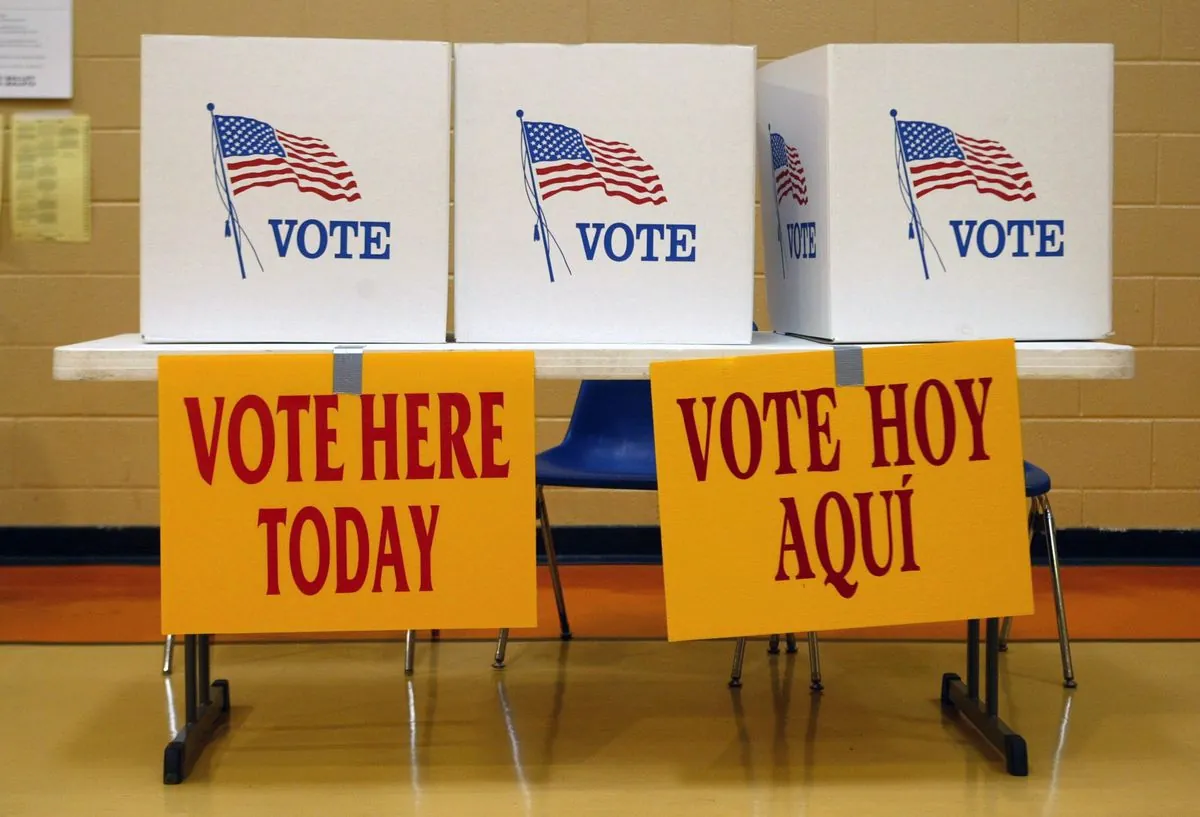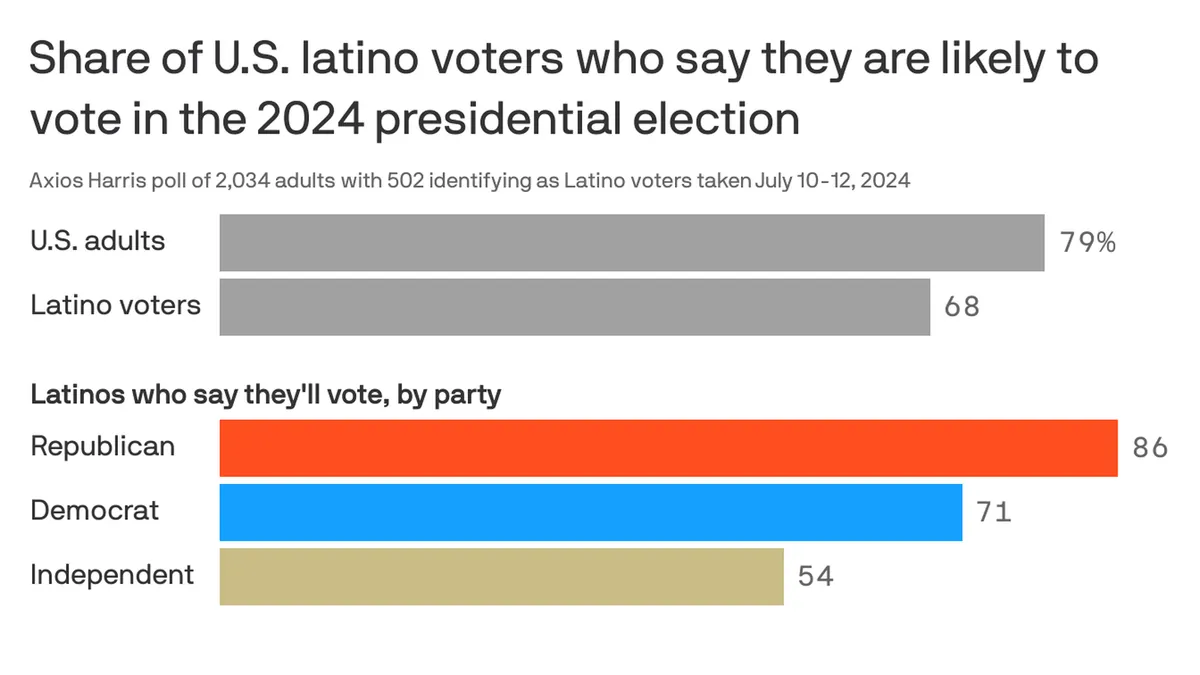Hispanic Voters Split on Harris and Trump as Election Approaches
Recent poll shows Hispanic voters equally favor Harris and Trump on economy, while preferring Harris on healthcare and climate change. Trump leads on immigration policy among this crucial voting bloc.

As the November 5, 2024 U.S. presidential election draws near, a recent Reuters/Ipsos poll reveals a complex landscape of Hispanic voter preferences, highlighting the importance of this rapidly growing demographic in shaping the electoral outcome.
Kamala Harris and Donald Trump are viewed equally on economic matters by Hispanic voters, with both candidates receiving 39% support. This represents a significant shift from May 2024, when Joe Biden trailed Trump by 4 points on economic issues among this group. The change reflects Harris' ability to neutralize Trump's previous advantage in this crucial policy area.

Hispanic voters, who constitute the largest ethnic minority in the United States, show clear preferences on other key issues. They favor Harris by substantial margins on healthcare (46% to 29%) and climate change (46% to 23%). However, Trump maintains an edge on immigration policy, leading Harris 42% to 37% among Hispanic voters.
These preferences largely align with the broader electorate, though Hispanic voters' support for Harris on healthcare and climate change is more pronounced. It's worth noting that as of 2022, there were approximately 62.6 million Hispanics in the United States, accounting for a significant portion of the voting population.
The importance of the Hispanic vote cannot be overstated. Chuck Rocha, a Democratic strategist, describes Latinos as "the most pure swing group of voters in America right now." This characterization is supported by demographic trends, with Hispanics accounting for 51.1% of total U.S. population growth between 2010 and 2020.
Harris' personal story as the daughter of immigrants appears to resonate with many Hispanic voters, potentially countering Trump's strength on economic issues. This connection is particularly relevant given that about 80% of Hispanics in the U.S. are American citizens, many with recent immigrant backgrounds.
Economic factors play a crucial role in shaping Hispanic voter preferences. The Hispanic unemployment rate hit a record low of 3.9% in September 2019, and the group has the highest labor force participation rate of any ethnic group in the U.S. Additionally, the purchasing power of U.S. Hispanics was estimated at $1.9 trillion in 2020, underlining their economic significance.
While Harris currently leads among registered Hispanic voters by 13 percentage points, this margin is smaller than Biden's 21-point lead in the 2020 election. Republican strategist Giancarlo Sopo views Trump's equal standing with Harris on economic issues as a win, given Hispanics' historical preference for the Democratic Party.
As the election approaches, both campaigns are likely to intensify their outreach to Hispanic voters. With the Hispanic population projected to reach 111 million by 2060 and their growing economic and political influence, courting this diverse voting bloc will be crucial for both candidates' success.
"It could be anybody's race still"
The dynamic nature of the Hispanic vote, combined with the younger average age of Hispanic voters compared to the general electorate, makes predicting their ultimate impact on the 2024 election challenging. As the campaign unfolds, both Harris and Trump will need to address the diverse concerns of this influential voting bloc to secure their support on Election Day.


































